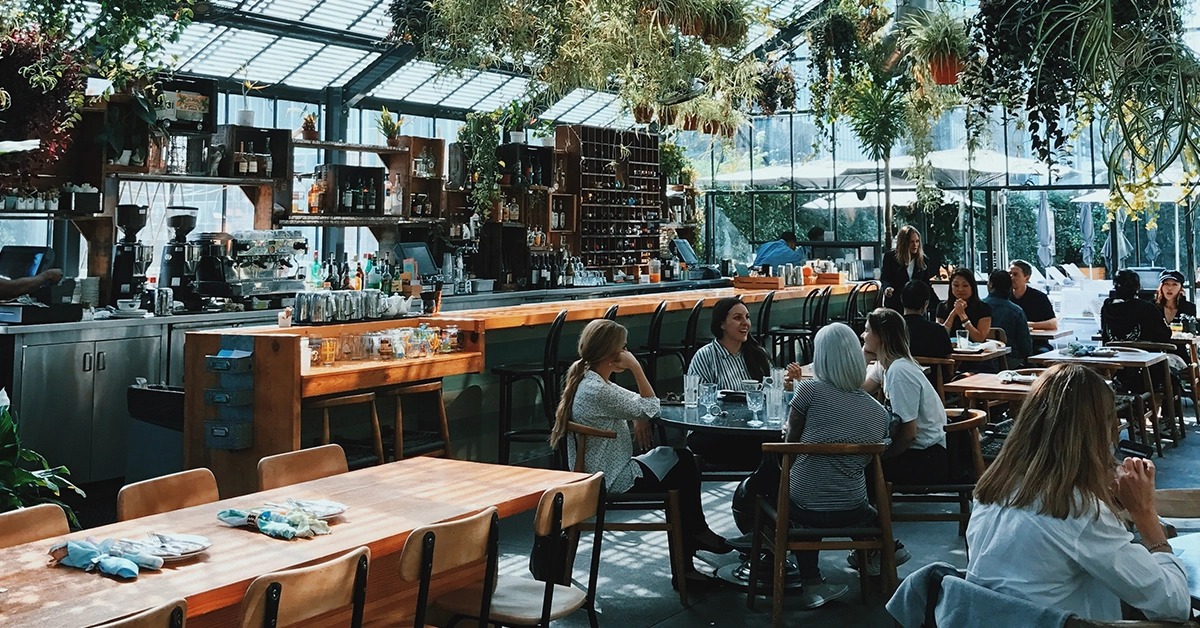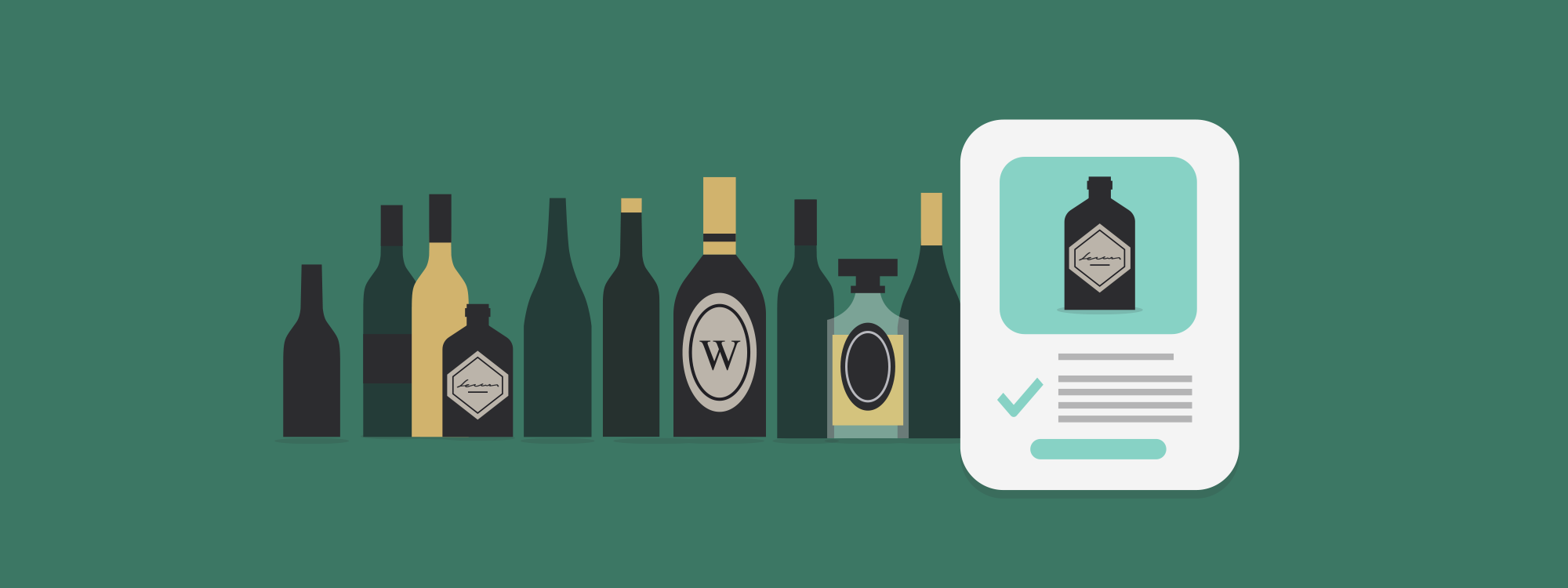
Getting an alcohol licence is an important part of starting a restaurant. If you’re planning on selling any form of alcohol, a licence is essential to making it legal. In this article, we’ll guide you through obtaining the appropriate licences for selling alcohol legally at your restaurant and elsewhere. We will cover:
- What is an alcohol licence?
- How do I get an alcohol licence in the UK?
- How long does a personal licence last?
- How much is an alcohol licence?
- Your responsibilities as an alcohol licence holder
- What licence do I need for alcohol delivery and click and collect?
See Lightspeed in action
Lightspeed is the unified ePOS and Payments platform powering ambitious entrepreneurs in over 100 countries.
What is an alcohol licence?
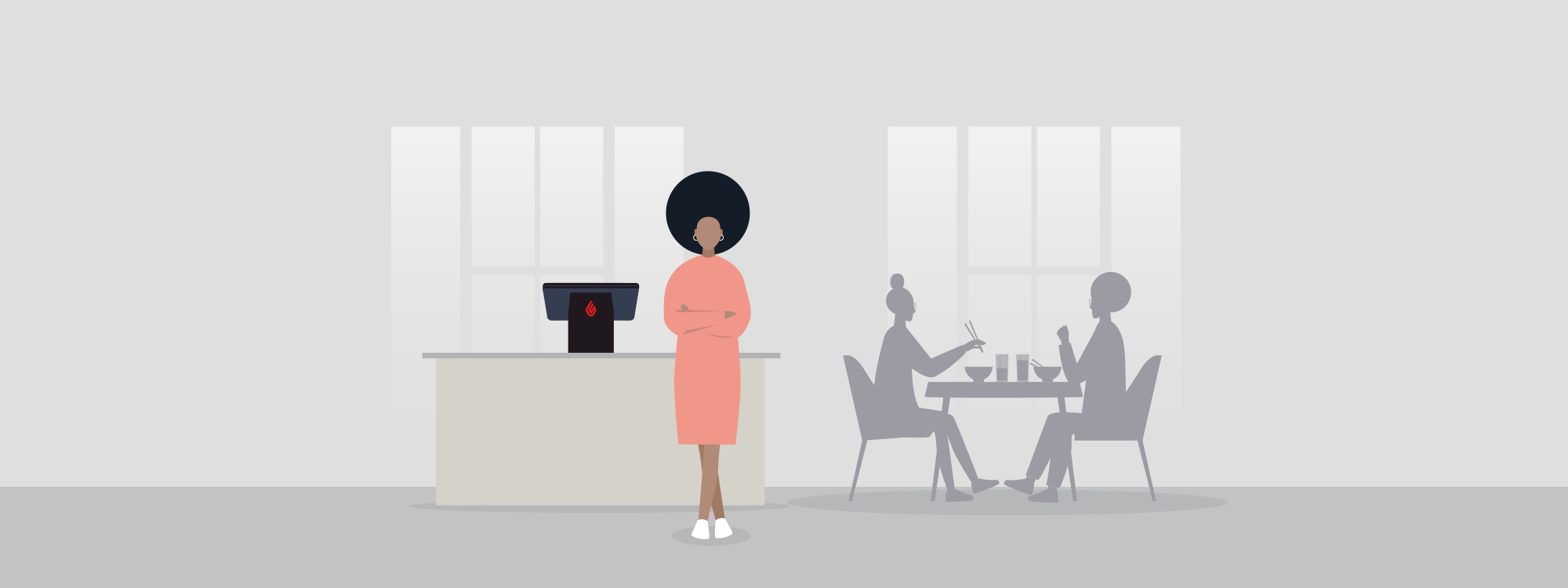
An alcohol licence lets you and your employees legally sell alcohol on a business premises. Selling booze in your restaurant, pub or cafe without it could land you a hefty fine of up to £20,000, or even a prison sentence.
But here’s the thing: there’s no single alcohol licence that UK business owners can hold. In fact, you need two licences, one for your business premises (premises licence) and one for you or your bar manager (personal licence).
Once you have both these licences, you’re then also legally obliged to buy alcohol from suppliers approved by HMRC.
Premises Licence
A premises licence is what authorises your business to buy and sell alcohol. It differs from a personal licence in that no individual can hold it, only physical locations.
However, that location doesn’t need to be fixed. If you’re a pop-up or food truck, for example, you will also need a premises licence.
A premises licence isn’t just for alcohol either. You also need one if you plan to have evening entertainment in your restaurant, or to serve food any time between 11pm and 5am.
Personal Licence
A premises licence alone is not enough to be able to sell alcohol at your restaurant. In conjunction with a premises licence, you also need a personal licence.
A personal licence allows certain individuals to serve alcohol on a licensed premises. When you hold it, you become designated premises supervisor.
Under your supervision, non-licensed individuals and others can sell alcohol on a licensed premises, provided they’re over-eighteen, and know how to make a mean margarita.
How do I get an alcohol licence in the UK?

You can apply for a premises licence through your local council. To obtain a personal licence, on the other hand, you will need to complete a qualification.
Personal Licence Qualification
Before you can become a designated premises supervisor, you’ll need to complete a qualification. Don’t worry though, you won’t need to go back to school. The course itself usually takes around a day to complete, and involves a multiple choice exam.
You can apply to do your personal licence course from an accredited qualification provider. You just need to be over-18 and eligible to work in the UK.
How long does a personal licence last?
You can give up your licence if you no longer wish to act as a designated premises supervisor or, if you use your licence irresponsibly the courts can remove it. Use it wisely, and a personal licence is yours for life.
How much is an alcohol licence?
A personal licence costs just £37, which you pay when you apply for the qualification. To pass you will also need to complete a DBS check which will cost you £18.
The cost of a premises licence varies depending on the rateable value of your commercial property. Either way, you will have to pay both an application fee and an annual charge. The higher the rateable value of your restaurant premise, the higher the fees for an alcohol licence will be.
Your responsibilities as an alcohol licence holder
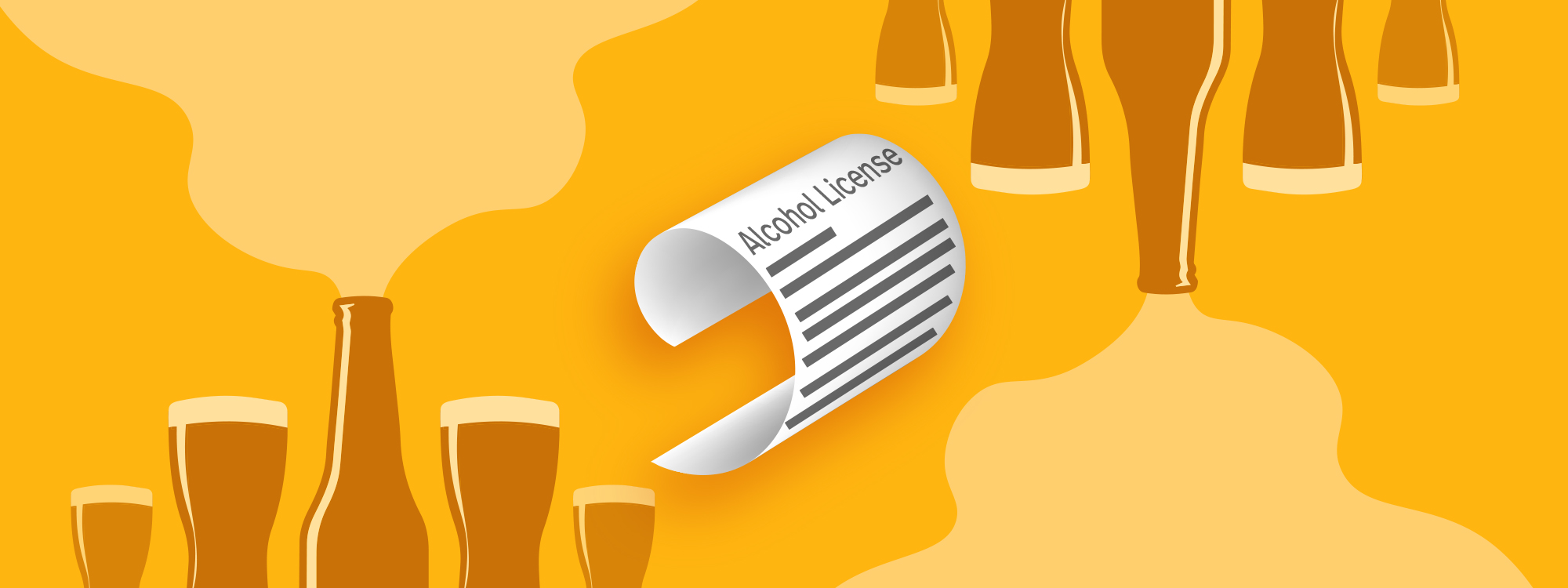
When you obtain an alcohol licence, you become a supplier. With that status, you’re obliged to sell it responsibly. As a designated premises supervisor, you’re not only responsible for the consumption of alcohol on the premises, you also act as a representative of the business. That makes you the first point of contact with local authorities, be it the police or civic council.
Asking for ID
It is illegal in the UK to sell alcohol to anyone under 18. Over 16s are allowed to drink beer or wine with a meal provided they’re with an adult. Over 16s can also serve alcohol in restaurants upon the licence holder’s approval.
The only way to find out a customer’s age is asking for their ID. With a restaurant ePOS, you can add instructions to alcoholic items on your menu, reminding your staff to ask customers to show their ID. Doing this in Lightspeed Restaurant is easy, just do the following:
Step 1. In the Back Office, go to Configuration
Step 2. Click Settings> Production Instructions
Step 3. Towards the bottom of the screen click: Add a production instruction
Step 4. Name the instruction “ID?” or “18+?”
Step 5. Click Save
Step 6. Go to Items
Step 7. For each alcoholic beverage click Edit under Actions
Step 8. Go to Production Instruction section and select the instruction from the dropdown menu
Legal Measurements
Asking a customer for their ID can be a risky business. The customer may get offended, and end up with a negative perception of your restaurant. That’s why it’s important that your staff ask for ID in a tactful manner.
In the UK, you’re required to serve alcohol in the prespecified measurements as follows:
Still wine: 125 ml, 175ml, multiples of 125ml and 175ml
Spirits: Either 25ml and multiples of 25ml, or 35ml and multiples of 35ml (not both on the same premises)
Draught beer and cider: Third, half, two-thirds of a pint and multiples of half a pint
Fortified wine: 50ml, 70ml, multiples of 50ml or 70ml
To comply with the law, it’s necessary to purchase measurements. When it comes to cocktails, where multiple spirits, as well as juice and sodas, can be added, jiggers make proportioning much easier. You can also buy them to measure wine and sherry.
Using measures makes beverage stock control much easier. Knowing exactly what amount of alcohol went in what beverage can help you calculate a better cost of goods sold, and better inform stocking decisions going forward.
When you use Lightspeed Advanced Insights, you can see sales of cocktails, which will help inform your buying decisions of alcohol going forward.
Take the following scenario:
- A customer comes to your bar to try your new cocktail menu. They choose a Moscow Mule. They pay for the drink with their card when you deliver the drink to the table.
- The customer finishes the Moscow Mule and they would like another drink, but the Moscow Mule wasn’t to their taste, so they order a Manhattan instead. They like the Manhattan and pay for it with the same card.
- The next day, they decide to return to the bar and order another Manhattan. Again, they pay with their card.
The Magic Menu Quadrant of Advanced Insights will show the following:
- The Moscow Mule shows that 0 customers that have ordered it return and reorder the same drink, giving it a 0% retention rate and sending it to the left of the quadrant with a lower retention rate.
- The Manhattan shows that 1 customer ordered it, and returned to order it again, giving it a 100% retention rate and sending it to the right of the quadrant with a higher retention rate.
This data will help you when planning your cocktail menu, and also when ordering alcohol, making sure you don’t waste stock, or therefore, money.
What licence do I need for alcohol delivery and click and collect?
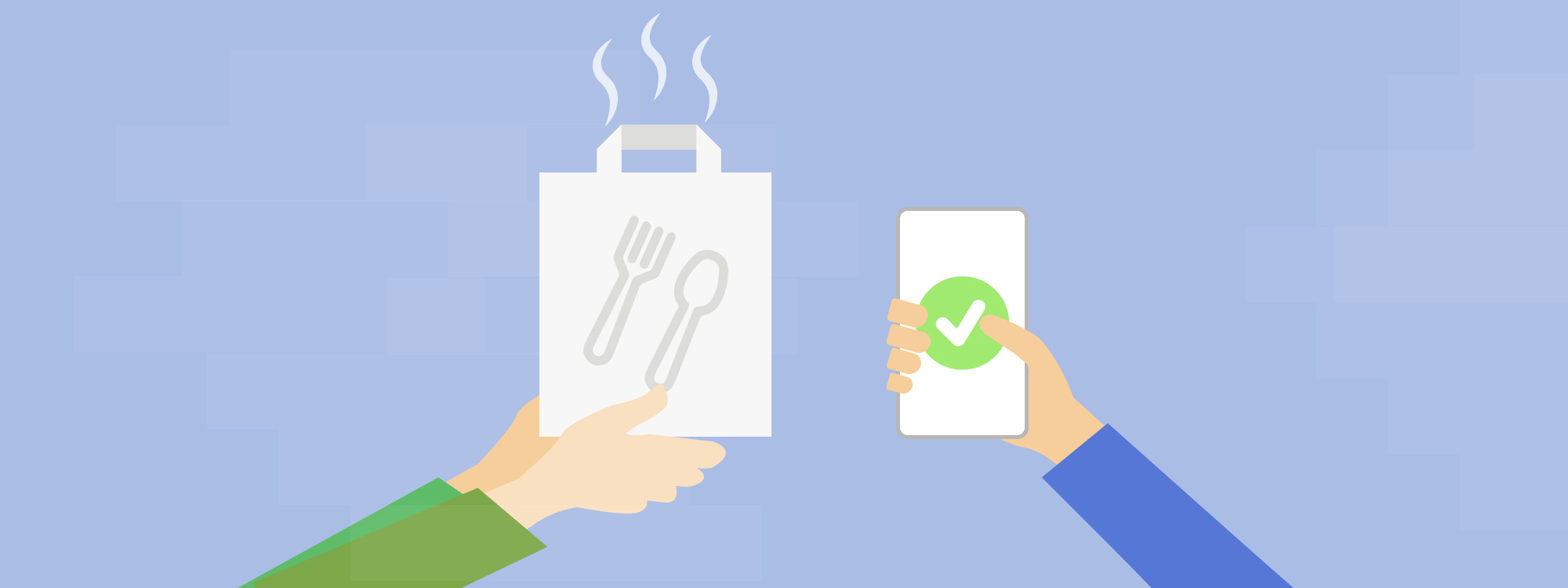
To offer alcohol delivery, restaurants will need much the same licence they’d need for any alcohol sales: a premises licence and personal licence.
Before implementing alcohol delivery, a business needs to authorise the supply of alcohol for consumption off-premise by ticking a box on the second page of their premises licence. In order for off-premise sales to be legal, the beverages must be packaged and labelled for the customer on the licensed premises and nowhere else.
When applying for these licences for the purpose of selling alcohol online or setting up an alcohol delivery service, you must clearly outline to the relevant authorities the steps you will take to make sure your products don’t end up in the hands of anyone under the age of 18.
Licensing authorities also expect that:
- Couriers are trained to ask anyone who looks under 25 for ID when delivering to doorsteps, much like one would at a bar.
- A delivery log and log of refusals (for lack of ID) is kept.
Lightspeed Order Anywhere
Lightspeed Order Anywhere is an online ordering platform where restaurant’s can upload their menus and sell their products on our online ordering platform without commission fees or hidden charges.
That’s what sets Lightspeed Order Anywhere apart from third-party online ordering platforms, and provides operators with effective means for increasing revenue without cutting into their margins.
In addition to saving you money, Lightspeed Order Anywhere allows you to offer flexibility to your customers. They can order without downloading an app, and can choose to pay hours or days in advance—all by simply scanning a QR code.
The platform also allows you to customise and modify the menus you display in a few clicks (by clicking on the “Update menu” button in the back office, your new menu is immediately available to your customers). With such easy menu changes, you can tailor a profitable takeaway menu with dishes that travel well.
What’s more, Order Anywhere fits perfectly into your existing workflow. All orders received via Lightspeed Order Anywhere are automatically synchronised with your Lightspeed Restaurant ePOS software and sent directly to the kitchen. This seamless integration with your Lightspeed ePOS reduces the risk of manual error and eliminates the need to retrain staff.
Get licensed, get serving
Obtaining an alcohol licence is a great forward step for your business. It will allow you to expand your network of suppliers, and grow your customer base. Want to learn more about how Lightspeed can help you run your restaurant? Let’s talk.

News you care about. Tips you can use.
Everything your business needs to grow, delivered straight to your inbox.


